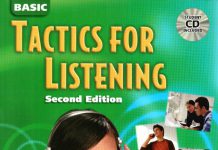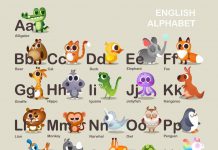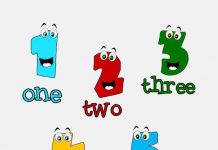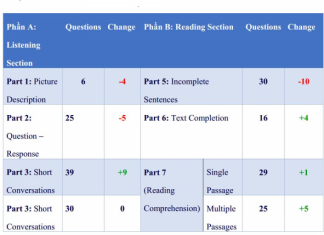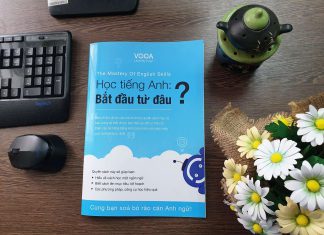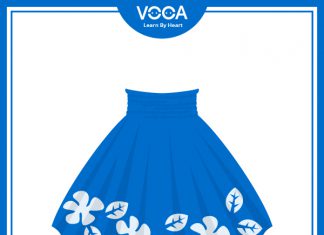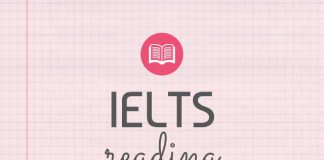Câu điều kiện là vùng kiến thức khiến nhiều người học tiếng Anh dễ nhầm lẫn. Vậy làm thế nào để biến đây trở thành phần ăn điểm. Hãy cùng tìm hiểu nhé!
1 – Câu điều kiện là gì?
Câu điều kiện dùng để nêu lên một giả thiết về một sự việc, mà sự việc đó chỉ có thể xảy ra khi điều kiện được nói đến xảy ra.
Câu điều kiện được hình thành từ 2 mệnh đề:
– Mệnh đề nêu lên điều kiện, được gọi là mệnh đề phụ hay mệnh đề điều kiện – If clause.
– Mệnh đề nêu lên kết quả, được gọi là mệnh đề chính – Main clause.
Lưu ý: Nếu mệnh đề điều kiện – If clause đứng trước thì giữa hai mệnh đề cần có dấu phẩy ở giữa ngăn cách. Và ngược lại thì không cần dấu phẩy.
Ví dụ: If you study hard, you will pass the exam. (Nếu bạn học tập chăm chỉ, bạn sẽ vượt qua kì thi.)
–> You will pass the exam if you study hard. (Bạn sẽ vượt qua kì thi nếu bạn học tập chăm chỉ.)
2 – Các loại câu điều kiện
1. Câu điều kiện có thật
If + S + V/ V-s/-es, S + V/ V-s/-es
If + S + V/ V-s/-es, S + will + V
2. Câu điều kiện không có thật
Câu điều kiện loại 2
If + S + V-pI, S + would/could/might + V
Câu điều kiện loại 3
Dạng câu điều kiện này thường được dùng để diễn tả sự tiếc nuối hoặc lời phê bình.
If + S + had + V-pII, S + would/could/might + have + V-pII
Câu điều kiện hỗn hợp
Có nhiều dạng câu điều kiện hỗn hợp trong tiếng Anh. Bài hôm nay sẽ giới thiệu loại câu điều kiện kết hợp giữa câu điều kiện loại 2 và câu điều kiện loại 3.
Cách sử dụng: Chúng ta sử dụng loại câu điều kiện này để diễn đạt giả định về một điều “trái với sự thật trong quá khứ”, và kết quả muốn nói đến cũng trái ngược với sự thật ở hiện tại.
If + S + had + V-pII, S + would/ could/ might + V
Ta thấy mệnh đề điều kiện – If clause sử dụng cấu trúc của câu điều kiện loại 3 (động từ chia ở thì quá khứ hoàn thành), còn mệnh đề chính – main clause sử dụng cấu trúc của câu điều kiện loại 2 (would/ could/ might + V).
Ta thấy mệnh đề “If” đưa ra một giả định trái với sự thật trong quá khứ, và mệnh đề chính đưa ra giả định về kết quả trái với sự thật ở hiện tại. Thực tế, kết quả bây giờ là anh ấy đã gặp rắc rối rồi (ví dụ 1), chúng tôi đã bị lạc rồi (ví dụ 2).
3 – Một vài lưu ý quan trọng
1 – Chúng ta có thể sử dụng unless với ý nghĩa là “trừ khi/ nếu không”.
Unless… = If not…
2 – Trong mệnh đề điều kiện ở câu điều kiện loại 2, chia động từ “be” là “were”
Ví dụ: If I were you, I would go home. (Nếu tôi là bạn, tôi sẽ về nhà.)
Ghi nhớ rằng trong mệnh đề điều kiện ở câu điều kiện loại 2, chúng ta thường sử dụng động từ “be” là were thay vì dùng was sau các đại từ I, he, she, it và danh từ số ít. Cách sử dụng này khá phổ biến trong những bối cảnh trang trọng và tiếng Anh-Mỹ.
Hy vọng, kiến thức về câu điều kiện chia sẻ sẽ giúp ích cho các bạn. Nhớ share, lưu vào cẩm nang học tiếng Anh mỗi ngày để không bị quên kiến thức nhé.
Bài tập
Bài 1. Cho dạng đúng của động từ trong ngoặc với câu điều kiện loại 1
- If I (study), I (pass) the exams.
- If the sun (shine), we (walk) into town.
- If he (have) a temperature, he (see) the doctor.
- If my friends (come), I (be) very happy.
- If she (earn) a lot of money, she (fly) to New York.
- If we (travel) to Hanoi, we (visit) the museums.
- If you (wear) sandals in the mountains, you (slip) on the rocks.
- If Giang (forget) her homework, the teacher (give) her a low mark.
- If they (go) to the disco, they (listen) to loud music.
- If you (wait) a minute, I (ask) my parents.
Phần 2. Cho dạng đúng của động từ trong ngoặc với câu điều kiện loại 2
- If I (come) home earlier, I (prepare) dinner.
- If we (live) in HCMC, my boyfriend (visit) us.
- If Tung and Thanh (be) older, they (play) in our football team.
- If he (be) my friend, I (invite) him to my birthday party.
- If Xuan (study) harder, she (be) better at school.
- If they (have) enough money, they (buy) a new car.
- If you (do) a paper round, you (earn) a little extra money.
- If Minh (get) more pocket money, he (ask) Lam out for dinner.
- If we (win) the lottery, we (fly) to London.
- If I (meet) Brad Pitt, I (ask) for his autograph.
Phần 3. Cho dạng đúng của động từ trong ngoặc với câu điều kiện loại 3
- If the weather (be) nice, they (play) football.
- If we (go) to a good restaurant, we (have) a better dinner.
- If An (learn) more words, he (write) a good report.
- If the boys (take) the bus to school, they (arrive) on time.
- If the teacher (explain) the homework, I (do) it.
- If they (wait) for another 10 minutes, they (see) the pop star.
- If the police (come) earlier, they (arrest) the burglar.
- If you (buy) fresh green vegetable, your salad (taste) better.
- If Alex (ask) me, I (email) the documents.
- If he (speak) more slowly, Peggy (understand) him.
Phần 4. Cho dạng đúng của động từ trong ngoặc
- If we meet at 9:30, we (have) plenty of time.
- Lisa would find the milk if she (look) in the fridge.
- The zookeeper would have punished her with a fine if she (feed) the animals.
- If you spoke louder, your classmates (understand) you.
- Dan (arrive) safe if he drove slowly.
- You (have) no trouble at school if you had done your homework.
- If you (swim) in this lake, you’ll shiver from cold.
- The door will unlock if you (press) the green button.
- If Mel (ask) her teacher, he’d have answered her questions.
- I (call) the office if I (be) you.
- If they (listen) carefully, they might hear the woodpecker.
- If I had lain down on the sofa, I (fall) asleep.
- Ngoc could have worked as a model if she (be) taller.
- The soil (not/dry out) if you water the plants regularly.
- If you (give) the young boy this stick, he’d hurt himself.
- We (not/take) the wrong tram if Dzung had asked the policewoman.
- If the cat hides in the tree, the dog (not/find) it.
- The students would have solved the problem if they (use) their textbooks.
- If he washed his feet more often, his girlfriend (visit) him more often.
- Manh (read) the newspaper if he went by train.
Đáp án
| Phần 1 | Phần 2 | Phần 3 | Phần 4 |
| 1. study/will pass 2. shines/will walk 3. has/must see 4. come/will be 5. earns/will fly 6. travel/will visit 7. wear/may slip 8. forgets/will give 9. go/have to 10. wait/will ask |
11. came/would prepare 12. lived/would visit 13. were/would play 14. were/would invite 15. studied/would be 16. had/could buy 17. did/could earn 18. got/could ask 19. won/would fly 20. met/would ask |
21. had been/could have played 22. had gone/would have had 23. had learned/could have written 24. had taken/could have arrived 25. had explained/could have done 26. had waited/might have seen 27. had come/could have arrested 28. had bought/would have tasted 29. had asked/would have emailed 30. had asked/could have understood |
31. will have 32. looked 33. had fed 34. could understand 35. would arrive 36. would have had 37. swim 38. press 39. had asked 40. would call/were 41. listened 42. could have fallen 43. had been 44. won’t dry out 45. gave 46. wouldn’t have taken 47. won’t find 48. had used 49. would visit 50. would read |
Xem thêm:







